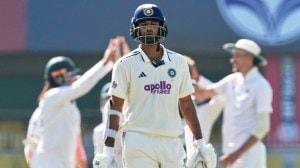Don’t make martyrs out of them
The judgment in the long-awaited Lakhubhai Pathak case finally came on December 22. The special judge acquitted not only former prime minist...

The judgment in the long-awaited Lakhubhai Pathak case finally came on December 22. The special judge acquitted not only former prime minister P.V. Narasimha Rao, but also the co-accused, self-styled godman Chandraswami and his associate Kailash Nath Agarwal (Mamaji). The acquittal came as no surprise. The initial delay in lodging the FIR, the prevarication that had marked complainant Lakhubhai Pathak’s deposition, and his death during the trial, had left no one in doubt about the outcome.
Understandably, Rao was visibly relieved and no one can grudge him that relief considering his age and the high stakes involved. But not many wlll agree with Rao’s counsel, Kapil Sibal, who observed that “justice has been done to the former prime minister, who has been a victim of conspiracy in a number of cases…In all cases he has come out victorious”. Sibal should be reminded that the Lakhubhai Pathak case was based on a written complaint given by Pathak to the then CBI director in September 1987. A case was registered in the economic wing of the agency in February 1988.
And, pray, who conspired in the JMM bribery case, which was registered at the time when Rao was himself the PM? It was done on the specific orders of the Delhi High Court. Ravindra Kumar of the Rastriya Mukti Morcha had filed a written complaint on February 1, 1996, to the CBI director, making serious allegations against Rao and others, over a 1993 event in the Lok Sabha, when Rao succeeded in getting a no-confidence motion against his minority government defeated, with the support of JMM members and factions of the Janata Dal. Since he did not get a satisfactory response from the CBI, Kumar moved Delhi High Court, which ordered the agency to register a case treating Kumar’s written complaint as an FIR. It was nearly after four years that chargesheets were filed. On the basis of prima facie evidence, the trial court framed charges against Rao, Buta Singh and others. The Supreme Court upheld the framing of charges, whereupon Buta Singh was sacked as a minister from the Vajpayee government. Both were also convicted in the case and it was in appeal that they were acquitted. So the case was, therefore, not all bunkum, as some would have us believe.
Then take the St Kitts case, in which a sum of $21 million was said to have been deposited in the name of V.P. Singh’s son, Ajay Singh, in the tax haven of St Kitts. V.P. Singh, it may be recalled, was sacked from the Congress for raising the issue of corruption in high places. He was at that time at the height of his popularity and Rao was external affairs minister. A global search was made to locate documents which would bear the signature of Ajay Singh. Ultimately one was located at the Indian High Commission in UK, brought to Delhi and the file made over to K.K. Tiwari, a minister in the Rao government. A very unique inquiry was conducted by an officer of the Enforcement Directorate, who without involving our diplomatic channels in the US, was looked after by Chandraswami, Mamaji and others at Miami. The officer was taken to St Kitts in a private aircraft, chartered by Lary Kolb, a relation of Adnan Khashoggi. Kolb and Mamaji accompanied the officer. The services of our counsellor in New York were utilised to authenticate the documents, even while our ambassador, Karan Singh, was kept in dark. Later, Rao admitted having asked the counsellor to authenticate the documents, adding he had instructions to do so from the “highest authority in India”.
When the investigation was at a crucial stage, the V.P. Singh government was toppled. As the CBI officer in overall charge of the investigation, when this writer did not yield to corrupt interference into the investigation, he was abruptly removed. The investigation remained buried for years together. This writer fought the case of his abrupt removal up to the Supreme Court. He lost the battle but won the war when, on the basis of a public interest petition, the investigation was revived and ultimately prosecution was launched in the case against Rao, Chandraswami and others.
But it was a truncated chargesheet. Important witnesses had died and much of the evidence lost because of almost no progress in investigation for years together. No wonder, therefore, that Rao was discharged. Undoubtedly, under our legal system, one is presumed to be innocent until convicted in a court of law. Rao and other high functionaries are entitled to a similar status.
But the circumstances under which the discharge or acquittal took place in such a high profile cases cannot be brushed aside. Let there be no attempt to turn these men into heroes and martyrs.
The writer is a former joint-director, CBI



- 01
- 02
- 03
- 04
- 05




























